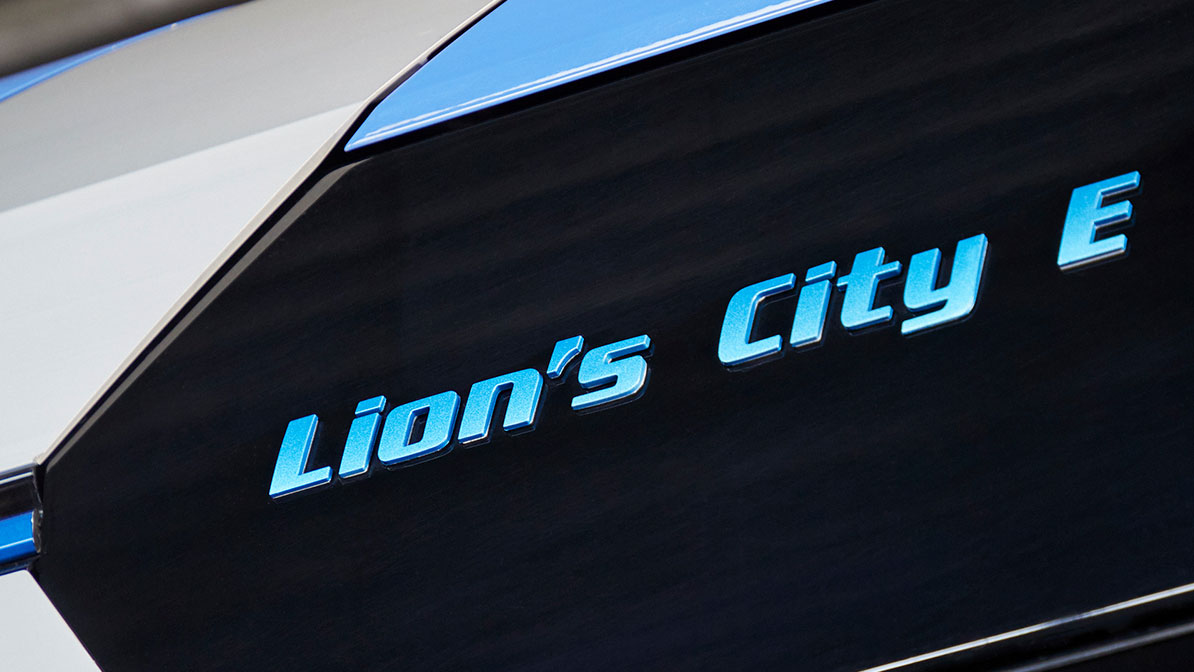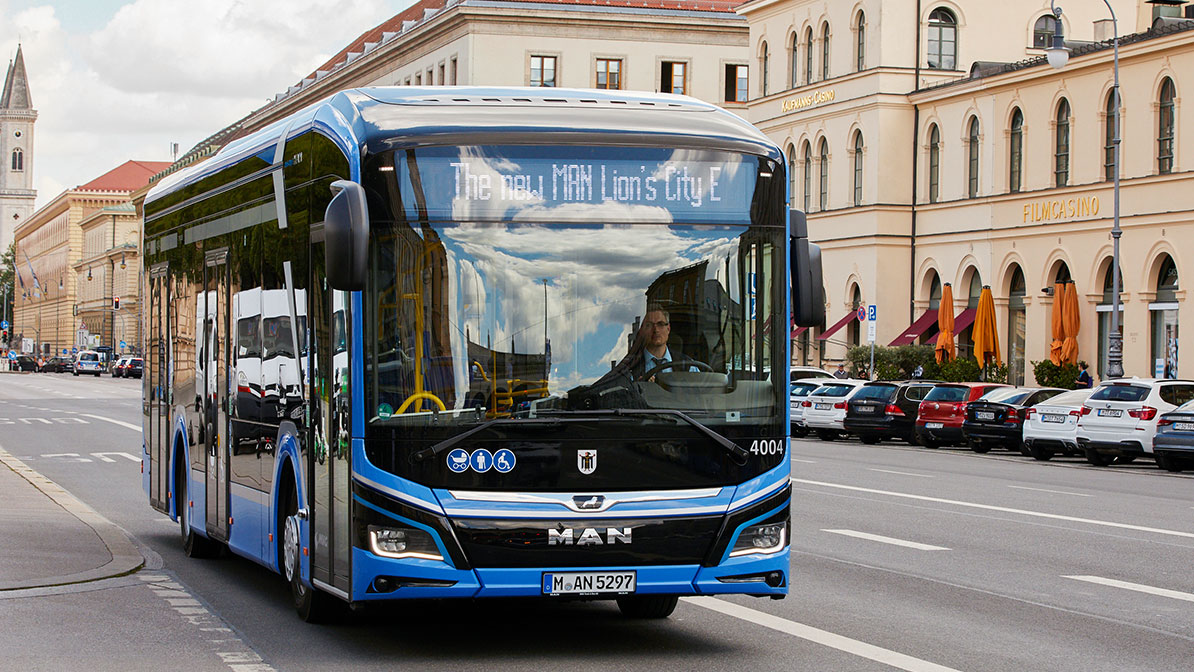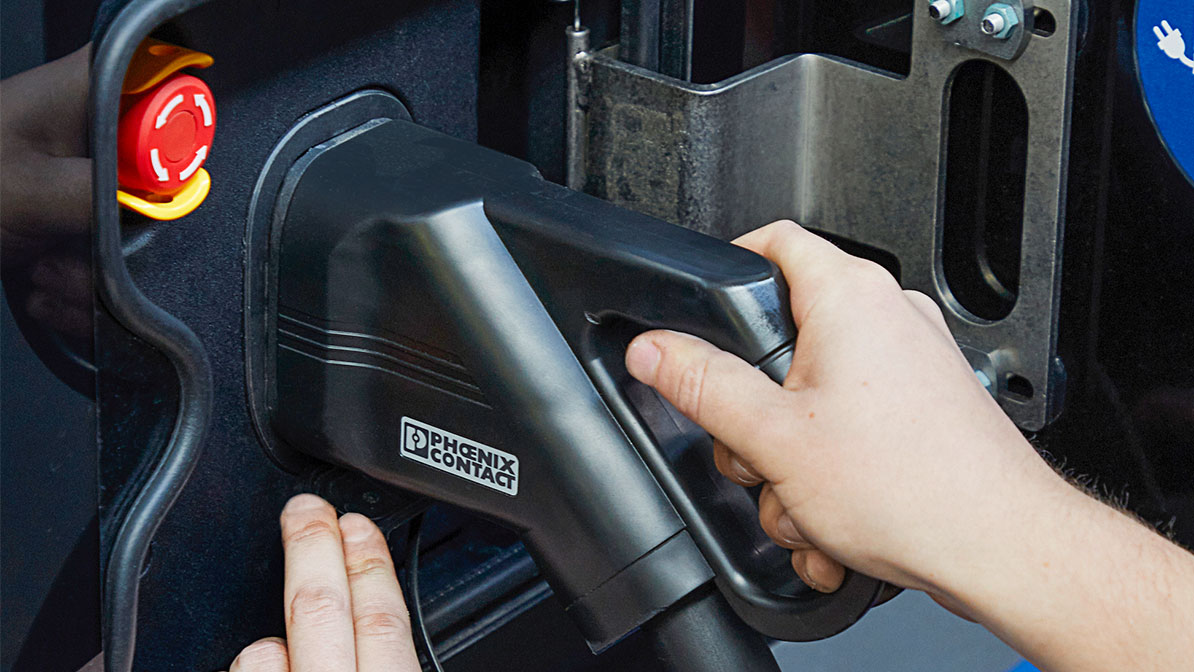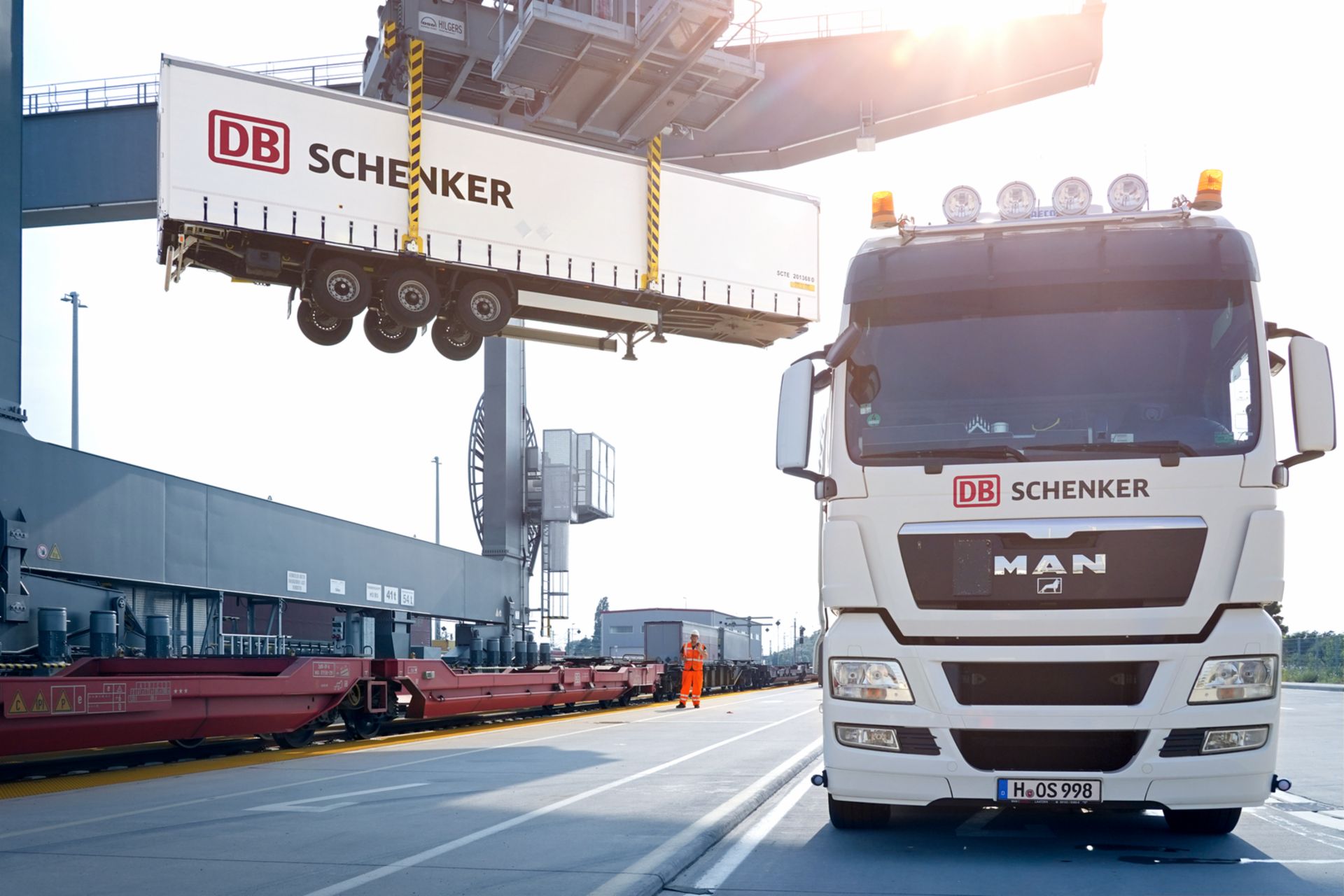Electric bus fleets play an important role in providing sustainable local public transport. This is also the case for the Munich Transport Corporation (MVG). While the company is already testing MAN e-buses in everyday use, Veit Bodenschatz, who is in charge of MVG’s bus operations, is planning ahead. His goal is for operations to be largely zero-emission by 2030. But how can that goal be achieved?
The white-and-blue bus on route 144 slowly makes its way through Munich’s heavy evening rush-hour traffic. A good dozen passengers are already waiting at the Olympiapark West stop. As usual, they move toward the curb as the bus approaches. But one passenger continues to stare intently at his smartphone. Only at the last moment does he look up, hurry to the door, and get on the bus.
The man waiting had probably been counting on the familiar diesel hum of the bus as his cue, but only a low whirring sound announces the arrival of the MAN Lion’s City 12 E making its rounds here. The all-electric single bus is being operated on route 144 as part of an innovation partnership between MAN and the Munich Transport Corporation. Many more electric buses are set to follow before 2030, since the transport company intends to electrify its bus services as far as possible by then.

Zero-emission transport — the battery-powered MAN Lion’s City 12 E in operation.
One-to-one switch
To achieve its ambitious goal, MVG is concentrating on the electrification of its fleet. “We could already operate almost half of our services with the current generation of electric buses,” reports Veit Bodenschatz, Head of the Bus Division at MVG. “Today’s vehicle range is already sufficient — even without any changes to the scheduling or routes, allowing us to maintain our existing services.” This is an important criterion given that, in the future, only one electric vehicle is to operate where one diesel vehicle has been in use up to now. Otherwise, the switch would not be economically viable for MVG.
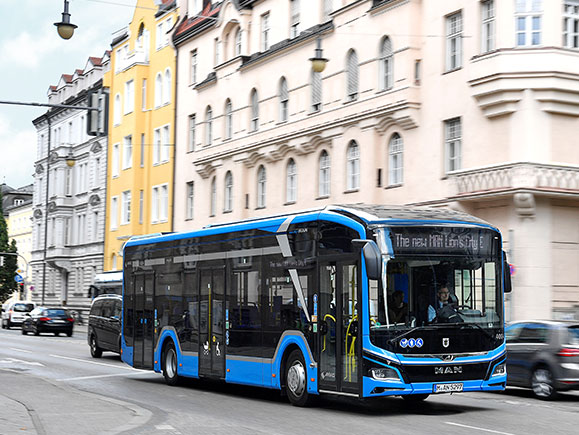
The MAN Lion’s City 12 E operates on Munich’s bus route 144 as part of an innovation partnership.
Bodenschatz is also confident about the other 40 or so bus services in Munich, most of which operate on longer routes. He anticipates a significant increase in range within the next five years, so that further routes can be electrified. Rudi Kuchta, Head of Business Unit Bus at MAN Truck & Bus, confirms his assessment: “We aim to increase the range of our all-electric buses to up to 400 kilometers by 2025 — over the entire service life of the batteries. This will allow our customers to operate around 90 percent of their routes on electric power alone.”
Cities opting for e-buses
These are also bright prospects for MVG, which is expecting to receive an initial order for twelve more electric buses in 2021. With a fleet that comprises around 400 company-owned vehicles, this is just the beginning. The number of newly acquired electric city buses will increase significantly in the next few years, since the situation is similar in many other European cities that are looking to provide more sustainable mobility: in addition to Munich, cities such as Berlin, Dresden, Cologne, Hamburg, Paris, and Barcelona are working on electrifying their local transport systems.
Series production ramps up
MAN is in an ideal position to meet this demand. Following initial successful everyday operations and long-term field trials in various urban areas throughout Europe, series production of the MAN Lion’s City 12 E began in October 2020. The first series vehicles have already been delivered to customers in Hamburg, with more to follow for regular service in Malmö, Sweden, and Nuremberg, Germany. Series production of the first all-electric articulated buses will start in April 2021, and field tests will play an important role in the run-up here as well. “Just like the single buses, our articulated buses will be tested in various locations and under realistic conditions in everyday operation — starting with Cologne and Barcelona,” reports Kuchta. “This will give us a wide range of insights, for example with regard to different topographical conditions and the regional climate.” The data obtained on the performance of the all-electric drive system will also be provided to customers in the future to ease their transition to e-mobility.
Infrastructure to be adapted
Data on the electrical requirements of individual vehicles is very important for transport companies like MVG. Moreover, the data is processed via software specially developed by MVG which then manages the charging cycle of the vehicles. “In the fall of 2021, we will start using our new Moosach depot, where we will initially have access to 56 charging points,” notes Bodenschatz. “We will gradually expand these capacities to achieve our target of 172 charging points by 2026.” As a next step, MVG is also converting its second depot in the east of the city according to the same principle. By doing so, the transport company will ensure that its e-bus fleet has a reliable supply of electricity.
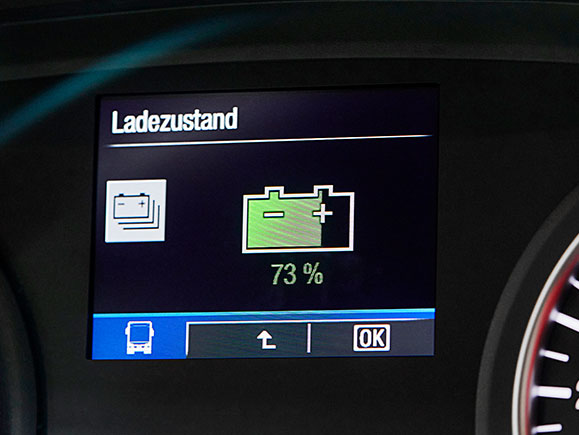
In the future, MAN will provide customers with data on the performance of the all-electric drive system.
MVG profile
The Munich Transport Corporation (MVG) organizes and coordinates local public transport in Munich. During rush hour, it operates around 550 buses from its own fleet and the fleets of its cooperation partners on 82 bus routes. In addition, the transport company runs eight subway and 13 tram lines, rents out bicycles, and offers e-scooters and car-sharing services. To become even more sustainable in the future, it plans to largely electrify its bus fleet by 2030. To this end, MVG is replacing the diesel buses currently in use with e-buses and, at the same time, expanding the charging infrastructure for the new vehicles.
Making local public transport more sustainable is a highly expensive undertaking for regional and municipal transport operators. Public authorities in Europe are therefore providing subsidies as an incentive to switch. Up to half the cost of new electric vehicles can be covered with the help of government grants. MVG receives 40 percent of the investment sum for the expansion of its charging infrastructure — i.e., for charging stations, transformers, distribution boxes, and cabling. “The subsidies enable us to quickly and comprehensively expand the facilities and convert our buses to sustainable drive technologies,” underscores Bodenschatz. So it looks like passengers at Munich’s bus stops will soon get used to buses quietly approaching them.
